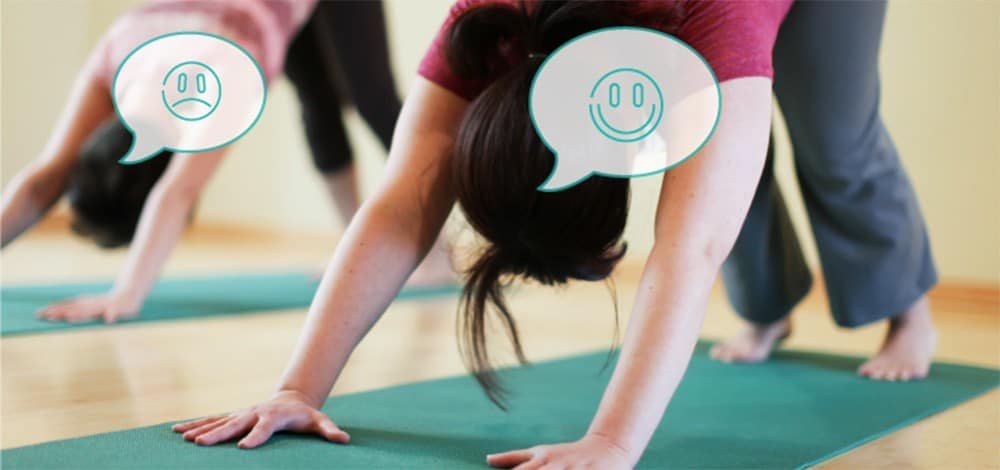By Olga Kabel, on Sequence Wiz
You know how sometimes you go to a yoga class and you come out feeling “This is exactly what I needed! I feel great!” and other times you end up feeling: ”That was awful.” Our tendency is to think that it is the fault of the teacher who didn’t do a good job (and sometimes it is), but more often it is about managing our own expectations and needs for the practice.
People come to yoga classes for all sorts of reasons, but they can mostly be summarized as “to feel better”. But what does it mean “to feel better”?
On the physical level, some students are satisfied with just moving their bodies a little bit, and others are not satisfied until they have folded and twisted their bodies to the limit. The rest of us are somewhere in between on that spectrum.
On the level of physiology some people define feeling better as being able to breathe deeper and others only feel accomplished if they sweated profusely.
On the level of mental activity some students are content with feeling a bit more focused at the end of the practice while others crave physical intensity to knock over their mental chatter.
On the level of personality some people enjoy being introspective and are willing to look at themselves with awareness and others are very uncomfortable doing so.
On the level of joy everybody wants to feel happy and connected, but some people define it as quiet appreciation of life’s small details, while others as grand events and accomplishments.
The yoga teachers are left to juggle those conflicting needs and expectations that vary not only from person to person, but also from day to day (and even in the course of one day). So what kind of strategies can they employ in teaching multilevel yoga classes to help all their students feel better in their own way?
In her book How Emotions Are Made: The Secret Life of the Brain Professor of Psychology Lisa Feldman Barret, PhD. introduces a concept of “body budget” as a main determining factor in how we feel. She argues that the way you feel at any given moment is not really a reflection of your external reality, but a reflection of your internal physiological balance. Your brain is always at work trying to balance your internal energetic checks and balances, making sure that if there is a big expenditure of some sort, it is followed by a large deposit to replenish the resources. Everything you do in your daily life acts as a deposit toward the body budget, or as a withdrawal. The brain is sensitive about the budget going both too low and too high, while negative balances and surpluses usually lead to disease.
Continue reading the full article here >>

